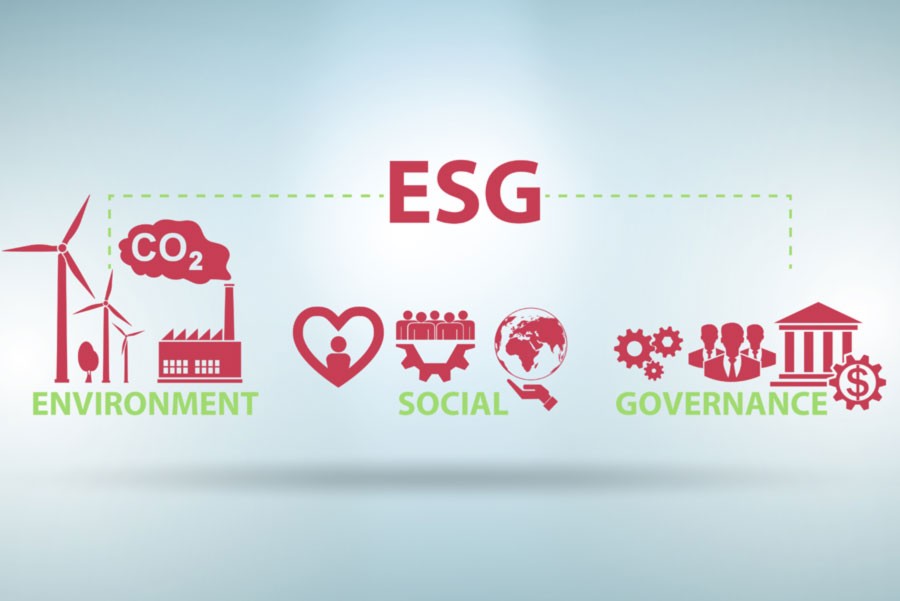There are several different options to build your portfolio through investment accounts. The most common options include a combination of stocks, bonds, and mutual funds. However, many of these investments are made based on risk tolerance and level of return, without any thought as to what you’re investing in. As people begin to make more sustainable decisions in their lives, ESG investing is becoming an increasingly popular opportunity. Here, we’ll answer the question: what is ESG investing?
Understanding the Basics of ESG Investing
ESG investing stands for environmental, social, and governance investing, which focuses on sustainability and the impact of your money. It provides an opportunity for you to utilize your investment dollars in a way that aligns with your beliefs and core values. When done properly, ESG investing can therefore be comparable to shopping local over making a purchase on Amazon. However, there are a few different criteria for ESG investing.
Different Criteria for ESG Investing
An investment is determined to be an ESG investment based on the measure of sustainability across the three primary categories involved: environmental, social, and governance. The resulting measurements are scored and therefore, potential investors can make a more ethical decision regarding their portfolio.
Environmental Factors
This criterion determines the measure that a company takes to stay in line with green initiatives. It takes into account what a company does to reduce their greenhouse gas emissions and how they use natural resources. It also looks at the product created to measure sustainability and recycling.
Social Components
The social components of ESG investing include things like community involvement and development, overall diversity both inside and outside of the company, equal employment opportunity, and a company’s overall impact on human rights—both locally and globally.
Corporate Governance
This criterion evaluates the company’s leaders. It looks at executive pay in compared to employee pay, diversity amongst top executives and board members, and the responsiveness of the company to their shareholders.
Why ESG is Important to Diversify Your Portfolio
For successful long-term investments, diversification is important. ESG investing is not only a great way to support social movements, make conscious decisions about the environment, and ensure equality, it’s also a great way to diversify your portfolio.
High Returns
ESG investments are shown to have high returns—even when compared to traditional investments. Through longitudinal studies, it’s been shown that they’re similar to traditional funds and in some cases, can even outperform them. You don’t have to abandon your moral or ethical values just to grow your investments. You can achieve both with strategic ESG investing.
Low Risk
Another great benefit of using ESG investments to diversify your portfolio is the relatively low risk. Regardless of the overall asset class of an ESG investment, it’s been shown that they have a lower risk than many traditional funds. This means you have a much lower potential for loss over time.
Sustainability
Finally, ESG investments help to promote sustainability in the environment, workforce, and employment opportunities. This is why ESG investing is commonly referred to as socially responsible investing (SRI). However, SRI is a blanket term that’s often used to describe ESG ratings and will sometimes filter out certain investments that some people view as immoral such as tobacco or alcohol companies. ESG investments will include these companies if they are creating positive impacts in other aspects of the criteria.
How to Get Started with ESG Investing
If you’re interested in diversifying your portfolio with companies that uphold ethics and mortality across environmental, social, and governance categories, ESG investing is the perfect opportunity for you. This process doesn’t have to be difficult—ESG opportunities continue to grow as companies make more ethically conscious decisions. To get started with ESG investing, follow these three simple steps.
1. Determine Your Approach
While it is possible to develop an ESG-based investment portfolio on your own, it will take a lot of work. You’ll need to understand how each company is scored, what their initiatives are, delve into funding, and gain more information on their core values and overall morality. When you work with an experience financial advisor who specializes in ESG investing, you’ll gain access to more investment options with less time spent on research and comparisons. Financial advisors like William Bevins will work with you to determine your overall risk tolerance, short- and long-term goals, and the ethical behaviors you support to create a personalized ESG investment plan.
2. Research ESG Policies
While working with a financial advisor can save you some time, it’s still important to research various ESG policies to better understand what you align with. There are differences between ethical investing and investing in socially responsible causes. Since values change so drastically between each individual, you need to solidify what your goals are so that you can make a more educated decision on what you want to invest in. These could be based on religious, cultural, or environmental beliefs. Consider whether or not you’d invest in a company that upholds your social beliefs but fails in environmental protection.
3. Find the Right ESG Investments
Once you better understand what you would and would not support, you can begin your journey to finding the right ESG investments. Work with your financial advisor to determine which industries you want to focus on first, which firms you support and which you don’t, and how you want to divide your investments. You can utilize both stocks and mutual funds to create your ESG portfolio. Typically, we recommend keeping a smaller portion of your portfolio dedicated to individual stocks and utilizing a higher percentage for mutual funds. However, this balance may change based on your ideology, risk tolerance, and more. If you’re new to ESG investing, choosing to create your portfolio on your own can be difficult, if not impossible. Building a strong, successful portfolio is time consuming and requires a unique methodology. William Bevins stands behind ESG to promote socially responsible investing opportunities for people of all ages. Contact us today to book a free consultation.




